A changing Viet Nam
The Viet Nam that is hosting APEC this year is a very different place to the one that first hosted APEC back in 2006.

Ambassador Craig Chittick
Viet Nam has made tremendous economic progress over the past decade. Its GDP has more than tripled over the last 11 years, driven by rapid growth in international trade and foreign investment. This remarkable transformation is evident throughout Viet Nam. Cars are steadily replacing motorbikes and low-rise buildings are being knocked down to make way for new skyscrapers.
The bilateral relationship between Australia and Viet Nam has also changed a great deal over the past decade. In 2006, APEC was the only economic organisation of which we were both members. Today, we are members of the World Trade Organisation and the Cairns Group, we are parties to the successful ASEAN-Australia-New Zealand Free Trade Agreement, and we are part of negotiations for the Trans-Pacific Partnership and the Regional Comprehensive Economic Partnership. Our two-way trade has been on a steady growth trajectory, exceeding 10 billion AUD in 2016-17. Viet Nam is now Australia’s 15th largest trading partner.
The broader bilateral relationship – which will celebrate its 45th anniversary in 2018 – has followed the same pattern. The links between Australia and Viet Nam are today deeper, broader and richer than they were a decade ago. This is largely thanks to a combination of our geographic proximity and our remarkable people-to-people links.
Our deepening relationship is reflected in our economic partnership. This is no longer a donor-recipient relationship, but a true partnership of equals. A partnership that is bringing benefits to both Australia and Viet Nam. It is assisting Viet Nam to meet its economic and social development aspirations, as set out in the Viet Nam 2035 Report and contribute to Australia’s prosperity and security. This partnership is also supporting Viet Nam’s APEC priorities of promoting inclusive growth and jobs, increasing regional integration, promoting food security and human resource development.

New South Wales, Australia.
Increasing productivity and strengthening competitiveness of Viet Nam’s Micro, Small and Medium Enterprises (MSMEs) will be critical to meet the aspirations laid out in the Viet Nam 2035 report. To support this, Australia has been closely engaged with Viet Nam on competition policy, including assisting with the development of the new draft Competition Law which will help to level the playing field between the private sector and Viet Nam’s SOEs. We have also supported an OECD Competition Peer Review, which will be finalised at the OECD’s Global Forum on Competition in December 2017. Australia has provided advice and supported consultations in the development of Viet Nam’s SME law this year through the majority Australian-funded Mekong Business Initiative (MBI) program and we have also began work through our partnership with the World Bank on strengthening SME linkages into Global Value Chains.
Australia’s new investment ‘Aus4Transport’ will support regional connectivity by accelerating and improving the quality of Viet Nam’s transport investments, including improving the quality of project
Ensuring women can participate fully in the economy will also be important, not just to ensure that growth is inclusive, but also that Viet Nam is making the best use of its human resources. Australia has worked closely with Viet Nam’s Ministry of Labour, Invalids and Social Affairs (MOLISA) to support its Chairmanship of the 2017 Women and Economy Forum (WEF) in September. This part of our broader support to Viet Nam on promoting women’s economic empowerment, guided by the Australia in Viet Nam Gender Strategy.
Australia has actively supported Viet Nam’s goals of regional integration and regional connectivity. In the late 1990s Australia funded the construction of Viet Nam’s first cable stayed bridge, the My Thuan Bridge, which has been a critical link in connecting road infrastructure across the Mekong Delta. A new Australian funded bridge in the Mekong Delta, the Cao Lanh Bridge, is due to be completed later this year. This bridge, along with the nearby Vam Cong bridge will reduce travel times by one hour between Long Xuyen and Ho Chi Minh City.

New South Wales, Australia.
Australia’s new investment ‘Aus4Transport’ will support regional connectivity by accelerating and improving the quality of Viet Nam’s transport investments, including improving the quality of project preparation, which will help ensure that Viet Nam has a new transport infrastructure pipeline in place to support its rapidly integrating and growing economy.
Supporting food security and sustainable agriculture are an important part of our partnership with Viet Nam. In March, I launched an Australian-funded Viet Nam Food Security Policy Review, which provided a significant contribution to the food security policy debate in Viet Nam. Australia is also funding projects focusing on responding to climate change, food safety, and accessing markets. We are also working to facilitate trade and improve market access for bilateral trade in agriculture products and to encourage investment in Viet Nam’s agriculture sector as outlined in our new Agriculture Strategy released in August this year.
Last, but certainly not least, is Australia’s support for Viet Nam’s goal of promoting innovative growth and ensuring Viet Nam has the skills needed to thrive in the 21st century economy. No longer can our economies rely on simply more capital or growing labour forces to generate growth – the growth now has to come from increases in productivity. Innovative growth is a priority for both Australia and Viet Nam and I see a strong innovation partnership between Viet Nam and Australia across a number of areas, especially education. The Australian Embassy in Hanoi now has an Innovation Champion to support our new program, ‘Aus4Innovation’. This program and our human resource development program ‘Aus4Skills’ will help build the human resources that Viet Nam needs to move up the value chain and take full advantage of the fourth Industrial Revolution.
It is exciting to contemplate how different Viet Nam will be in another decade. Demographic and technological changes will pose challenges but also create opportunities. This will be true across all APEC economies, not just in Viet Nam. Harnessing the full potential of our people, supported by efficient government policy and institutions together with effective human resource development, will be more important than ever to stay ahead of the curve.
I am confident that a decade from now, the Australia-Viet Nam relationship will be even stronger than it is today and Australia will still stand ready to support the Vietnamese people to achieve their ambitions.
Craig Chittick
Ambassador of Australia to Viet Nam
VNF/Tgvn
Recommended
 National
National
Vietnam News Today (May 13): Vietnam Maintains High Human Development Index Despite Global Slowdown
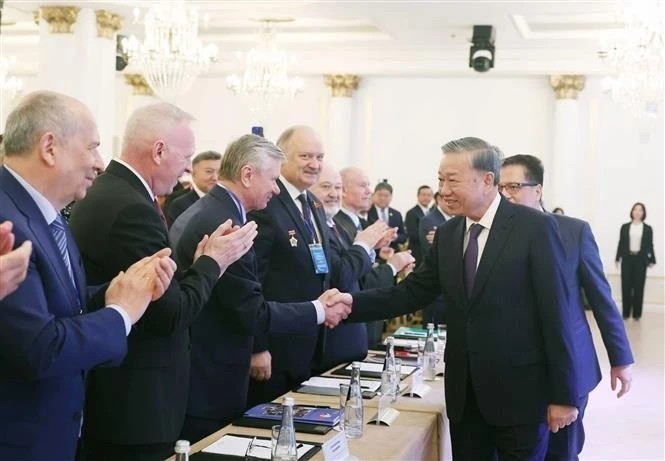 National
National
Vietnam News Today (May 12): Party General Secretary Meets With Russian Experts, Intellectuals
 National
National
Vietnam News Today (May 11): Vietnam, Austria to Boost Cooperation in High-Tech Development, Innovation
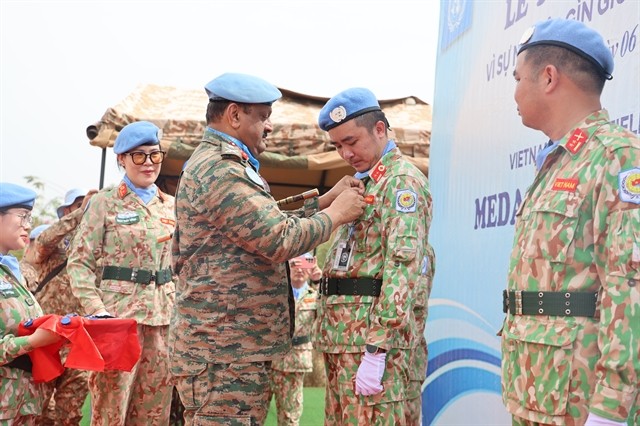 National
National
Vietnam News Today (May 10): Vietnamese Peacekeepers Honored with UN Medal in South Sudan
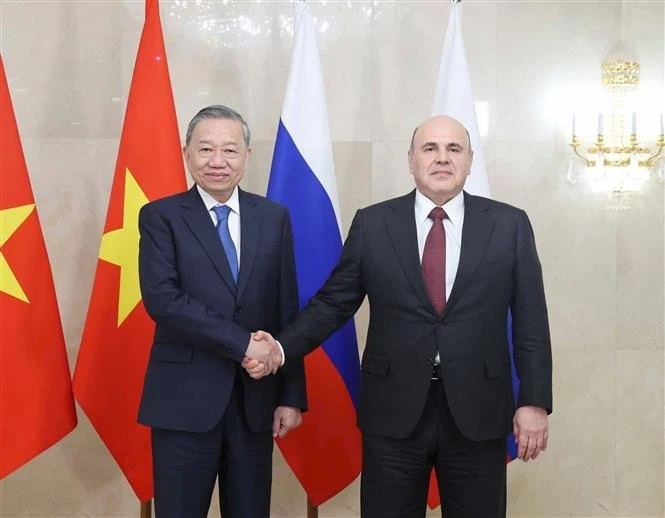 National
National
Vietnam News Today (May 9): Vietnam Ready to Work With Russia to Elevate Relations
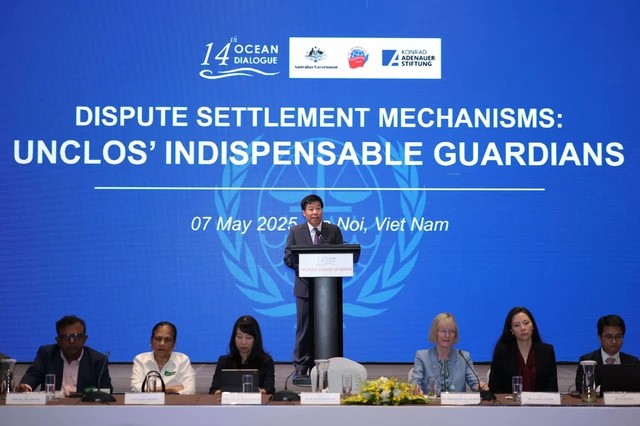 National
National
Vietnam News Today (May 8): Vietnam Remains Committed to UNCLOS
 National
National
Vietnam News Today (May 7): Vietnam Hosts Over 7.67 Million International Visitors in First 4 Months
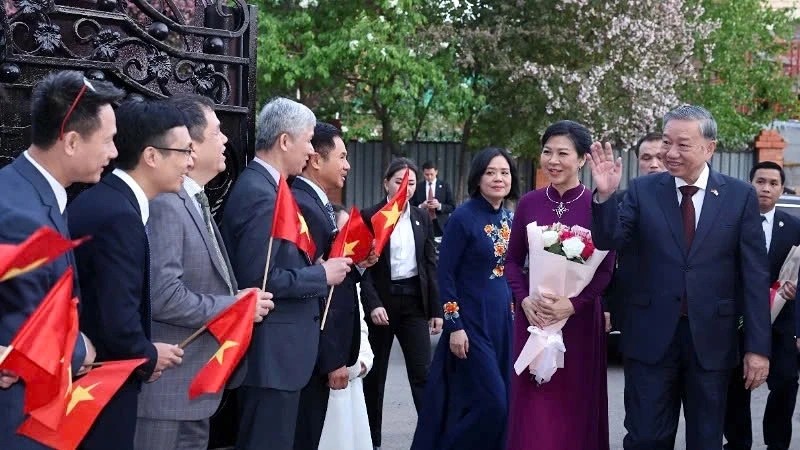 National
National
